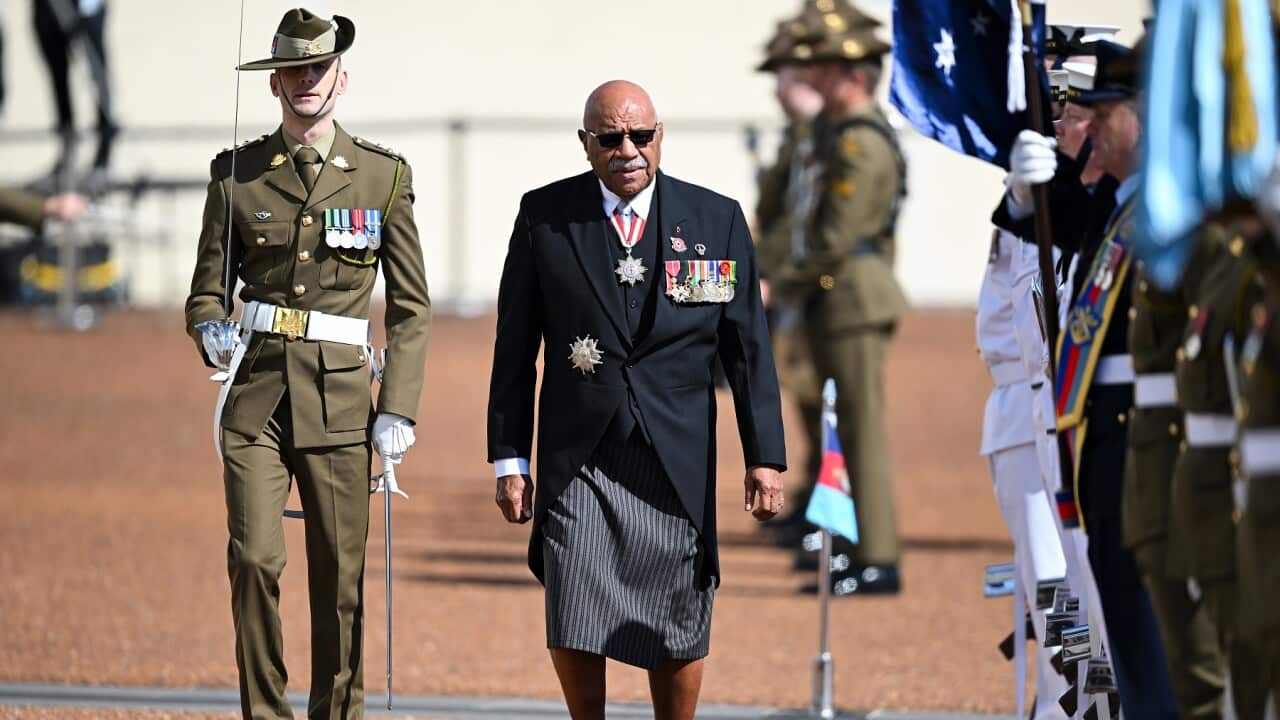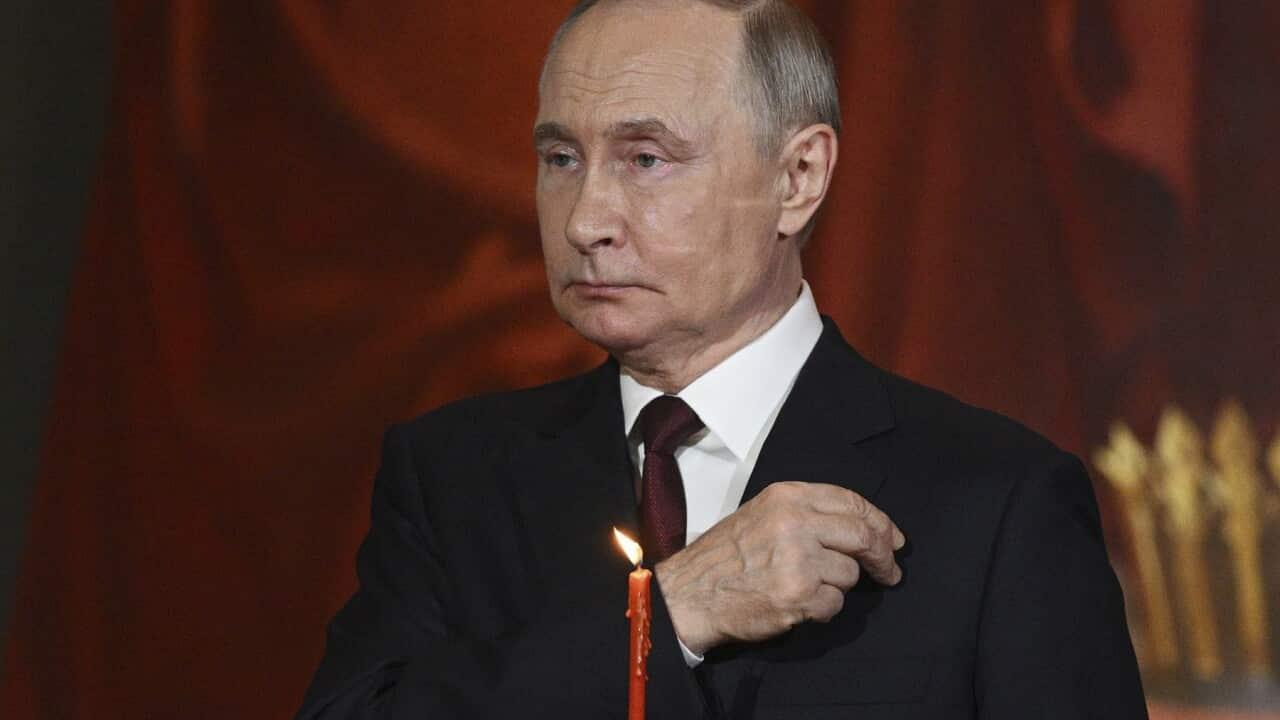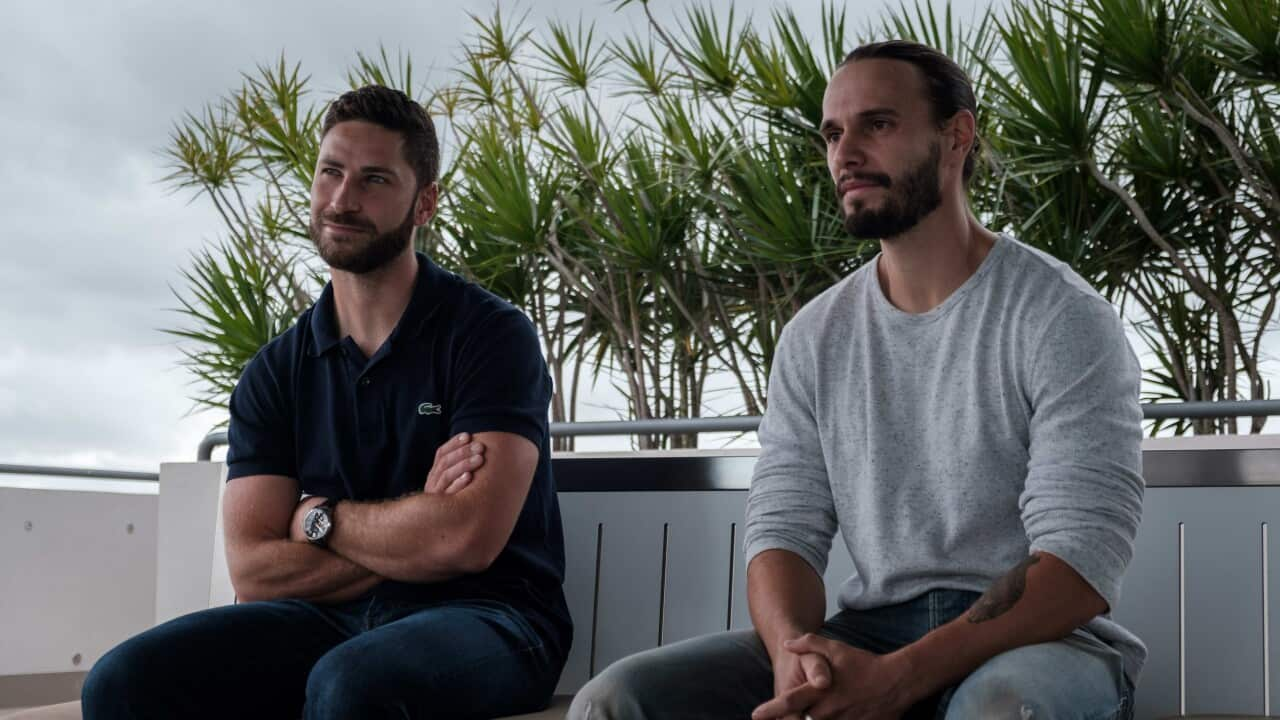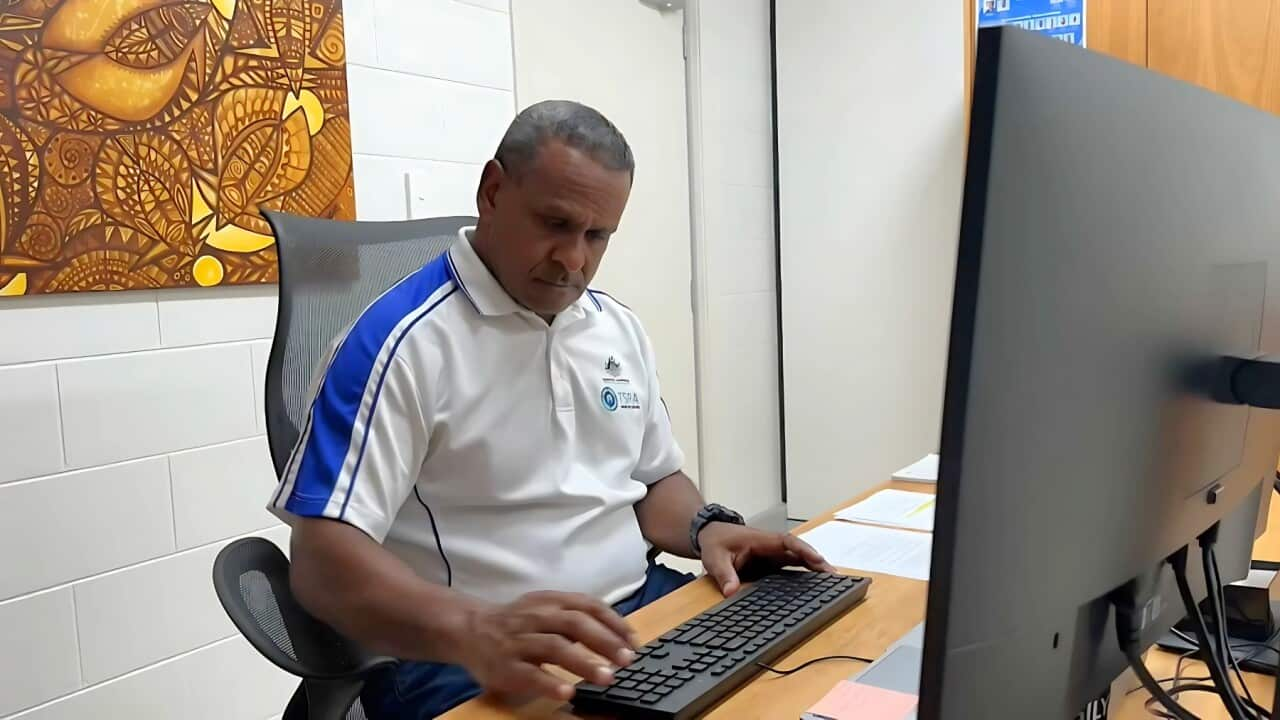TRANSCRIPT
Airports have always played host to emotional reunions - and today is no exception.
Doug Stevens and his wife are among more than 200 people to land back in Australia after evacuating from Israel.
He says everything happened so fast.
"It was just amazing. We were lying in our hotel room, and a missile landed about 150 metres away from us... You could just see the trails of the missiles through the sky and then, a puff of smoke and gone. And five, ten minutes later, you're out of the bunkers."
The government is understood to be working to support more Australians to leave the West Bank as it liaises with international partners to arrange transport to Jordan.
Safety is also a major concern for the Fijian Prime Minister, Sitiveni Rabuka, who is in Australia on an official visit.
Prime Minister Anthony Albanese has confirmed the government has been working with Fiji and other Pacific nations to help evacuate their citizens from Israel.
"Australia appreciates that Fiji Airways flew 13 Australians along with Fijians and others out of Tel Aviv this week, and Australia was able to assist 30 Fijians on a commercial flight on Sunday."
Australia and Fiji have also agreed on a broad deal where the Pacific nation will be supplied with an extra 14 Bushmaster military vehicles, and a fast-tracked visa application process.
The Fijian leader is also pushing for a peace closer to home, in the form of a Pacific peace zone.
Mr Rabuka says he'd rather see Fiji go back to its traditional relationships after pledging closer ties with Australia and announcing an intention to scrap a policing agreement with China.
"The association we have and our Vuvale partnership reflect that we are a family, and a lot of the things we do within the sections of the family are supported by others."
Those Pacific tensions have acquired a particular significance amid concerns of spying by the Chinese government.
ASIO Director-General Mike Burgess, meeting US FBI director Christopher Wray in California for a conference on Chinese hacking, says his agency detected and disrupted a plot to infiltrate a prestigious Australian institution in just the last month.
Home Affairs Minister Clare O'Neil doesn't believe these concerns will disrupt a planned visit by Anthony Albanese in the next few weeks, or an improved diplomatic relationship with Beijing.
"We are facing very difficult geopolitical circumstances in our country. Our government has said that this is the most complex geopolitical situation that Australia has faced since the second world war, and we are navigating that situation very carefully."
With national security again on the agenda, advocates have renewed a push for the prosecution of whistleblowers to be dropped.
In an address to the National Press Club, former correspondent Peter Greste urged the government to consider greater protections for journalists and their sources, amid concern that national security laws are being used to squash legitimate reporting.
Rawan Arraf, from the Australian Centre for International Justice, has backed that call in the case of David McBride.
"We should be proud of the process that Australia has set up to ensure that there is accountability for the allegations of serious wrongdoing - war crimes - that occurred in Afghanistan in our names. We should be proud of the people who came forward to ensure that that process actually occurred.. And David McBride is the first person that will face trial for the allegations of wrongdoing - of war crimes - in Afghanistan. This is a serious injustice."
Justice is also on the minds of those who remain disappointed with the result of the Voice referendum last weekend.
The front-man of rock group Goanna has returned his Order of Australia medal in protest at the overwhelming No vote, with Shane Howard writing to the Governor General that he sees the vote as a missed opportunity to be respectful and honest with our First Nations peoples.
The federal government says it's still considering the next steps it will take to address Indigenous disadvantage.
Greens leader Adam Bandt says the way forward is clear.
"Peter Dutton led a Trumpian campaign of misinformation, and we now need to bring the country together. And a process of truth-telling will help with that... And that will allow everyone to get on the same page so that we can then move forward together as a country to get genuine lasting reform and justice for First Nations people, including with a treaty."













